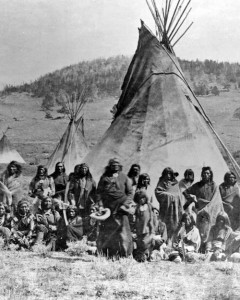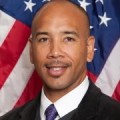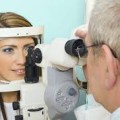As we, in this part of the world, head towards spring with its rebirth of green life, it is great to see the rebirth of near normalcy in those nations most affected by EBOLA.
In January less than 100 cases of Ebola were reported in Liberia, Guinea and Sierra Leone combined. Earlier last year, over 9,000 cases had been reported with many more unreported. The world was ravaged by fear, accusations and even killings.
Liberia was hit the worst but life is beginning to return to normal. Children are returning to school, people are going to the beach, and people are engaging with each other again by hugging and shaking hands. One 19 year old student said, “We used to be afraid to touch our friends, but the fear is small, small now”. Ebola cases number in the single numbers.
In this country near panic was spread by the media in order to sell newspapers. Some on the religious right blamed the acceptance of homosexuality for the epidemic. There were attempts at extreme isolation by some governors including Governor Christie. Many did not trust the health agencies we have in New York City as I discussed in my previous column, “The Sky is Not Falling”. Of course we had to be careful but we the HHC and with the NYC Department of Health did a good job of handling the situation.
There was only one case here in New York City and that person survived. Nationwide there were seven individuals with ebola, in which two died after developing ebola prior to arriving in the United States and with severe ebola symptoms. Two nurses developed ebola after being exposed to the ebola victim in Texas. They survived due to proper medical care. Two doctors who developed ebola while providing humanitarian care to patients in West Africa were returned home and survived because of proper care. They went on to help patients and possible victims here in our nation.
There was no reason for panic. After a slow start, the Centers for Disease Control and Prevention (CDC) acted in a forceful and effective manner. Special accolades go to HHC, Jacobi, and other Bronx hospitals and to those who acted in a deliberate, but without panic, way to reassure the public.
Although this disease is ebbing for now the most difficult work has to begin. As Dr. David Nabarro, the United Nations Special Envoy on Ebola said, “Fundamentally, this (the Ebola epidemic) is about the extent to which societies change their behaviors, how they change them, and the speed at which they change them.”

American Indian Smallpox epidemic lasted from 1500 until 1900. The disease was brought to their land by European settlers.
Ebola is not the first nor the last deadly epidemic to devastate our planet. We have seen The Black Death (plague), the Bubonic Plague, AIDS, Native Indian Smallpox, and Avian Influenza. Naturally, there will be more to come.
The world needs to have a comprehensive plan to stop epidemics and most importantly to prevent epidemics. There has to be an agency in Africa and other parts of the world similar to the CDC in our nation. This agency must be ready to act when the first report of a contagious disease is reported and must act as an early warning system. Nations must be responsible for record keeping and for having strict regulations for reporting illness to a central world organization, possibly the World Health Organization which had no teeth to stop the EBOLA epidemic.
Strict laws are also needed where people need to act immediately in reporting illness. Education in isolation and about disposing of the dead should be added. While this is a sensitive issue, laws must eliminate rituals of tribal or religious custom during outbreaks which include touching of the dead. The governments of the world must be sure that its residents are involved in community engagement of any disease.
The United States must take the lead. We appear to have the best system through the Centers for Disease Control and Prevention, however, our President and Congress must act to give the CDC more power. The CDC needs to work with WHO and with health agencies in those nations most prone to epidemics. Funding issues need to be revisited when epidemics begin. The United States was quick to respond and assist Liberia unlike reports that state that the United Kingdom did not respond and assist its former colony Sierra Leone in a comprehensive or cooperative manner.
We are one world. We cannot listen to the isolationists who say: “That is their problem. Not Ours”. Together we can stop the spread of disease.


















Follow Us